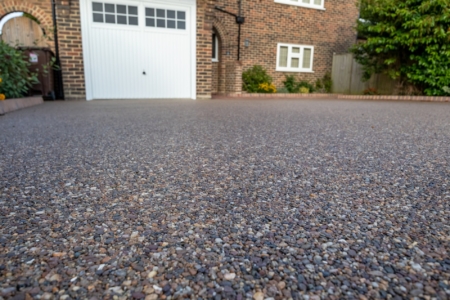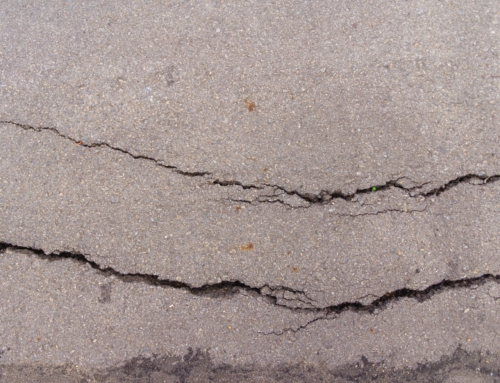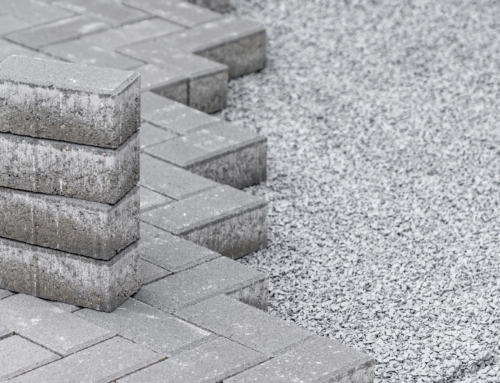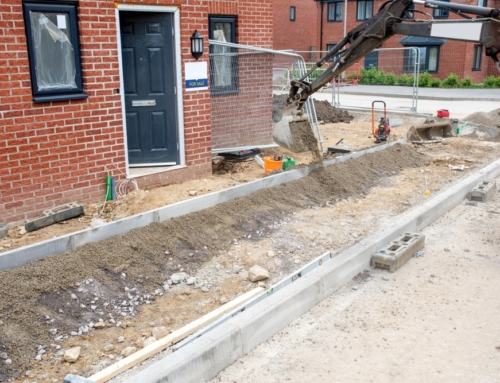
How to care for resin driveways
Resin driveways are popular with UK homeowners, coming with many benefits like good longevity, easy maintenance and stylish looks. However, as with any surface, regular care is the key to preserving the resin’s condition.
Whether you’re planning driveway aftercare post-installation or you want to take better care of your resin bound driveway, follow our handy tips for success.
How do you clean a resin driveway?
Regular cleaning will help your resin driveway retain its appearance. Always start by removing any debris (like leaves and twigs) using a soft-bristled brush or leaf blower. Next, wash the driveway with water to loosen any grime. You can also use a mild detergent or specialist resin cleaner for stubborn marks and stains.
Avoid using harsh chemicals or abrasive brushes on the resin to avoid damage. You should remain mindful of high-water pressures, hiring a professional jet wash company if required. After cleaning your driveway, rinse it thoroughly to remove any residue. Wait for the surface to dry before you walk or drive on it again.
What are the signs your resin bound driveway is damaged?
When considering new driveway materials, resin is a durable choice, but it can still sustain damage and deterioration as the years go by, especially if it’s poorly maintained. Factors like heavy traffic, severe weather or improper installation can start to show signs of damage.
Common signs your resin driveway needs work includes cracks, insufficient drainage, potholes, loose stones, an uneven surface or discolouration. If you spot any of these issues, you must take action or the resin’s condition will continue to worsen. Contact a professional driveway contractor to inspect. They’ll recommend the necessary repairs or resurfacing measures required.
Can you reseal a resin driveway?
Good quality resin driveways will be installed with a seal, but this may need reapplying every few years to protect the surface from cracks forming or widening. This resin maintenance practice can significantly increase its lifespan after exposure to UV rays, heatwaves, rain, hail and ice, not to mention supporting the weight of heavy vehicles.
Without proper sealing, your resin bound driveway can slowly degrade and lose its protective benefits. The resealing process involves applying a fresh coat of resin binder over the area to reinforce its strength. This also fills any small cracks or gaps to stop weed growth and refresh the driveway appearance.
How do you remove stains from resin driveways?
Oil spills, grease and other grime can depreciate your driveway value and affect its appearance. Addressing stain problems fast will prevent stubborn marks from setting deep into the resin, which can make them more challenging to get rid of.
To remove stains from resin driveways, blot any excess liquid using a clean cloth (if the spillage is recent). Mix a mild detergent with warm water and gently rub the stained area with a soft-bristled brush before rinsing with clean water again. You may need to repeat these steps. Try not to use stronger chemicals, but if you’ve bought a specialist resin cleaner, patch test it in a small area first, and carefully follow the manufacturer’s instructions.
Contact our resin bound driveway experts for a free quote
UK Surfacings in a resin driveway expert for London and Reigate, coming out to Cobham, Crawley and surrounding areas. For your free resin driveway quote, contact us now.





